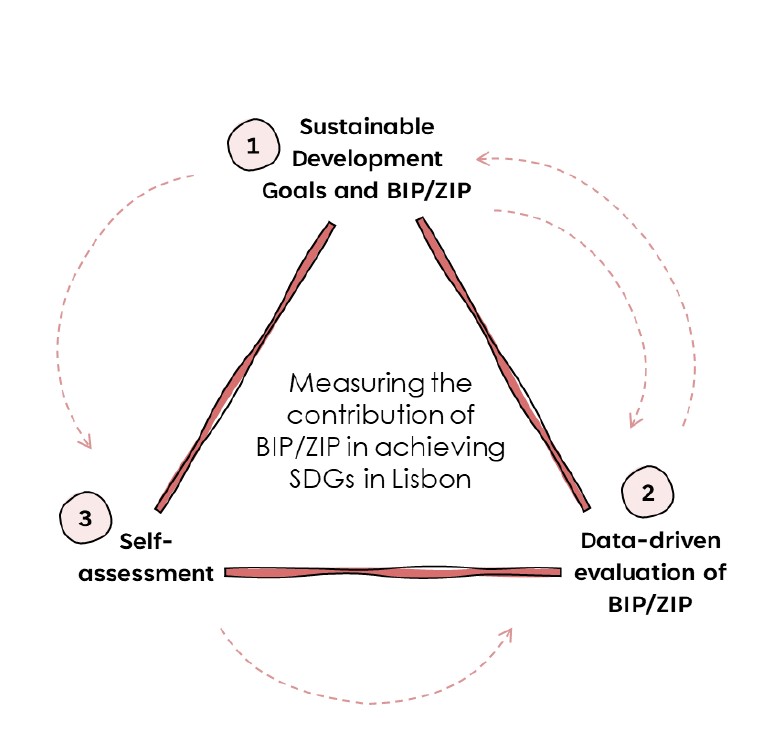Incorporation of social impact of commons-oriented policies in urban sustainability reporting
Created on 14-11-2024
Current sustainability reporting at a city level emphasises macroeconomic indicators of merely environmental and economic factors, while significantly overlooking the profound influence of commons-oriented policies on the social life and overall wellbeing of residents. These policies, which promote shared resources and community engagement can significantly promote social equity, cohesion and sustainable forms of living.
Addressing this challenge requires a re-evaluation of urban sustainability reporting to encompass comprehensive social indicators that measure the effects of commons-oriented policies. By recognising the importance of community-driven initiatives, such as shared spaces, urban gardens, and collaborative projects, reporting can offer a more holistic perspective on urban sustainability. Incorporating these social dimensions can inform policymaking, promoting urban environments that are not only environmentally and economically sustainable but also socially vibrant, inclusive, and resilient.
Systems knowledge
Actors
Local government
This denotes the administrative authority responsible for governing and managing local affairs within a specific geographic area, such as a city, town, or district, through local policies, regulations, and services.
Sustainability experts
A sustainability expert is a professional who specializes in advising, implementing, and promoting practices that balance environmental, social, and economic concerns to ensure long-term well-being for current and future generations. They possess in-depth knowledge of sustainability principles and strategies, helping organizations and individuals make more environmentally responsible and socially conscious choices.
Method
Systems thinking
Systems thinking is an approach to understanding and solving complex problems that looks at the big picture and the interactions between the different parts of a system, rather than focusing on isolated components or events. It also considers the relationships and connections between these components to understand the system as a whole.
Interdisciplinary collaboration
Teams from different disciplines or fields work together to tackle complex problems, find innovative solutions and develop a broader understanding of a particular issue. This approach recognises that many real-world challenges cannot be adequately addressed within the confines of a single discipline or field.
Knowledge co-creation
A collaborative process in which individuals or groups with different backgrounds and expertise come together to generate new knowledge, insights or solutions collectively. This approach recognises that knowledge creation is not limited to experts or academics but can come from exchanging ideas, experiences and perspectives from various sources.
Sustainability assessment systems
Frameworks, tools or methodologies used to assess and measure the sustainability performance of various entities, such as buildings, infrastructure projects, organisations and communities. These systems help assess and quantify environmental, social and economic impacts so that stakeholders can make informed decisions and improve sustainability practises.
Microdata collection
This method involves the systematic gathering of detailed (often on a household or individual level) data on a wide range of variables or characteristics, enabling in-depth analysis.
Empirical validation
This refers to the process of verifying and confirming theoretical hypotheses, concepts, or models through practical observations, experiments, or data analysis, establishing their reliability and accuracy based on real-world evidence.
Stakeholder consultation
This entails actively engaging and gathering input from individuals or groups who are directly affected by policies, aiming to incorporate their perspectives and insights into the decision-making process.
Tools
Indicator development
This involves creating measurable criteria or markers to assess and pinpoint specific characteristics or conditions that would indicate a household's requirement for support or assistance.
Transdisciplinary collaboration
Transdisciplinary collaboration refers to a collaborative approach in which individuals from different disciplines and fields work together to address complex problems or research questions that require insights, methods, and expertise from multiple domains. This collaboration involves the integration of knowledge and perspectives from diverse backgrounds to develop innovative solutions or gain a comprehensive understanding of the issue at hand.
Standardised protocol
Universally accepted set of rules and guidelines that ensures consistency and quality in a specific process or industry.
Target knowledge
Topic
Social sustainability
Dimension
Institutional
The structure of government institutions that have the responsibility and power to create building regulation and monitor compliance with them
Social
This dimension relates to aspects influencing or impacting people, communities, and societal structures.
Level
Municipal
This level refers to the local administrative or governmental unit, typically a city or town, responsible for local governance, services, and decision-making within a defined geographic area.
Transformation Knowledge
No references
Related vocabulary
Social Sustainability
Area: Community participation
Created on 03-06-2022
Read more ->Blogposts

Participatory budgets and Sustainable Development Goals
Posted on 29-10-2022
Secondments
Read more ->